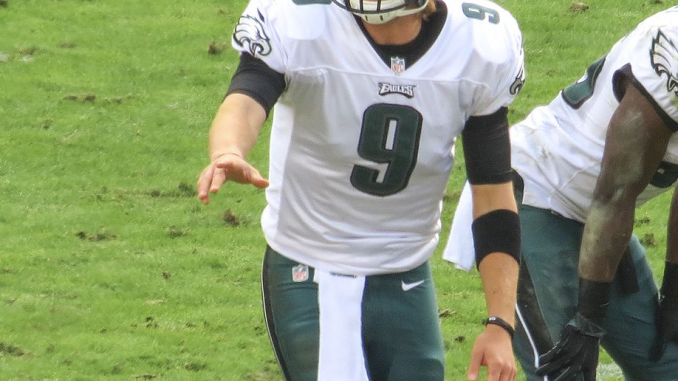
At the beginning of this football season, if somebody were to tell me that Nick Foles would be Super Bowl MVP, I would probably burst out laughing.
Incredibly enough, he became just that with an impressive 28-of-43 passing, three touchdowns and one interception performance, to reel in a 41-33 victory over the New England Patriots. He became the first quarterback to start the season as the backup and win the Super Bowl since the man he beat, Tom Brady, 16 years ago. But perhaps most flashily, he became the first person to throw for and catch a touchdown in the Super Bowl. After his breakout 2013 campaign, he made a career out of being a backup quarterback and almost decided to retire. For Foles to lead this Philadelphia Eagles team to their first Super Bowl victory against the five-time Super Bowl champion and three-time MVP Brady is quite the upset.
The game was a shootout from the start, with both quarterbacks collectively totaling up 878 passing yards. Defense was thrown to the wayside, as the teams managed to combine for 1,151 total yards on offense, the most of any Super Bowl or postseason game in NFL history. Out of all the drives, only one culminated in a punt. While many critics complain that football is too slow of a game, this one was action packed.
While both quarterbacks dominated in the air, the Eagles ground game had much more of an impact than that of the Patriots. Former-Patriot LeGarrette Blount had 14 carries for 90 yards and a touchdown, with ex-Miami Dolphin Jay Ajayi also contributing with 57 yards over the course of nine carries. New England’s James White had seven carries for 45 yards and a touchdown while Dion Lewis had nine carries for 39 yards. While undrafted rookie Corey Clement only had eight yards on three carries, he clocked in as the Eagles leading receiver with four receptions for 100 yards and a touchdown, becoming the first undrafted player to notch 100 yards in the Super Bowl, and the second-ever rookie to do so. For Blount’s rushing efforts, him and fellow ex-Patriot defensive end Chris Long became the first two players to win a Super Bowl with one team and then defeat their old team in the Super Bowl the very next year.
Although the Patriots lost, nothing about this game was a blowout. While the Eagles took an early lead, going into the half with 22 points to the Pats’ 12, Tom Brady came out in the third quarter with the renewed focus and fervor that we knew he would have after coming back 10 points down. The third quarter is when things really got exciting, with the Patriots scoring two touchdowns and the Eagles scoring one to bring the game to 26-29, the Eagles barely holding on to their lead.
When the fourth quarter rolled around, it seemed like the game would come down to who had the ball last. Eagles kicker Jake Elliott made a 42-yard field goal to bring the game to a score of 32-26; impressive considering that both teams’ kickers had tallied up three misses beforehand, two of which were on extra points.
The field goal wasn’t enough to hold their lead, however, after Brady connected with Gronkowski in the end zone for a touchdown that gave the Patriots a one-point lead after Stephen Gostowski made the extra point. Foles saw the challenge ahead of him and rose to meet it, driving 75 yards on 14 plays to score an 11-yard touchdown pass to tight end Zack Ertz, bringing the score to 38-33.
Brady got the ball back with 2:21, more than enough time for the expert quarterback to pick Philadelphia’s secondary apart and tie the game up. Fortunately for Eagles fans and Brady-haters alike, Eagles pass-rusher Brandon Graham stripped Brady on the only sack of the night, while rookie Derek Barnett recovered it. The Eagles used this turnover to their advantage, kicking a field goal and capping the game at its final score of 41-33. Brady did have one more chance to drive the ball, but when his final last-ditch hail mary proved incomplete the Eagles charged the field as rightful Super Bowl champions.
Brady played an incredible game, throwing a record 505 yards with three touchdowns and no interceptions, but ultimately his efforts were not enough to surpass the Eagles’ voracious offense. With Nick Foles bringing the city of Philadelphia their first Super Bowl victory, I think it’s safe to say that he’s glad he never retired.
